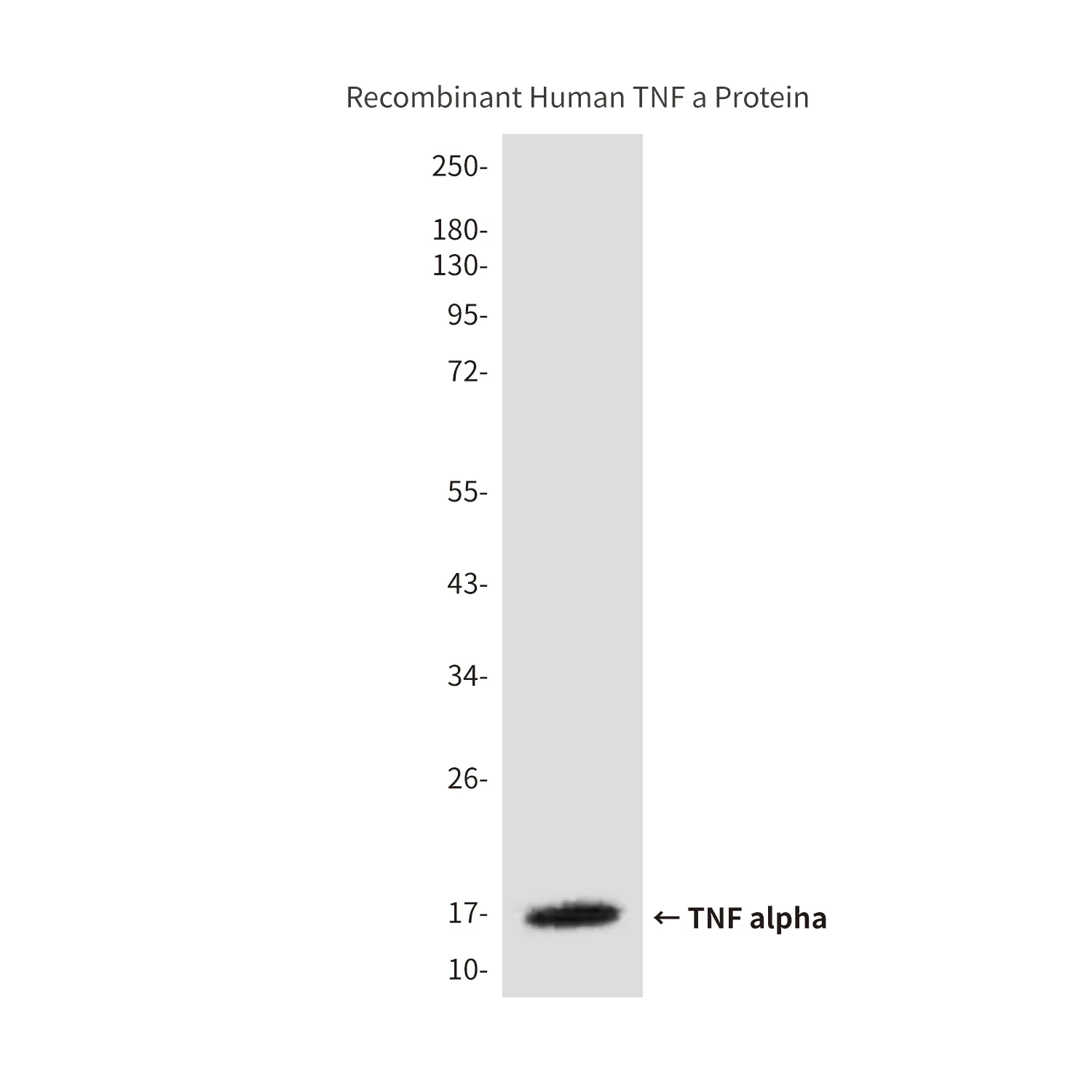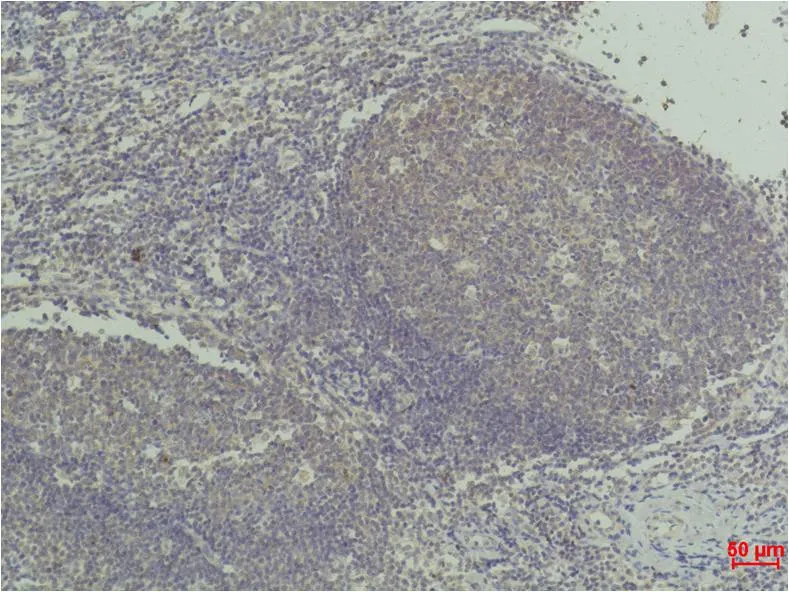

Size:100μL Price:$280
Size:200μL Price:$520
Application:WB,IHC
Reactivity:Human,Rat,Mouse
Conjugate:Unconjugated
Optional conjugates: Biotin, FITC (free of charge). See other 26 conjugates.
Gene Name:TNF
Summary
| Production Name | TNF alpha (9D9) Mouse Monoclonal Antibody |
| Description | Mouse monoclonal Antibody |
| Host | Mouse |
| Application | WB,IHC |
| Reactivity | Human,Rat,Mouse |
Performance
| Conjugation | Unconjugated |
| Modification | Unmodified |
| Isotype | IgG1 |
| Clonality | Monoclonal |
| Form | Liquid |
| Storage | Store at 4°C short term. Aliquot and store at -20°C long term. Avoid freeze/thaw cycles. |
| Buffer | Liquid in PBS containing 50% glycerol, 0.5% protective protein and 0.02% sodium azide, pH 7.3. |
| Purification | Affinity Purification |
Immunogen
| Gene Name | TNF |
| Alternative Names | TNF; TNFA; TNFSF2; Tumor necrosis factor; Cachectin; TNF-alpha; Tumor necrosis factor ligand superfamily member 2; TNF-a |
| Gene ID | 7124 |
| SwissProt ID | P01375 |
Application
| Dilution Ratio | WB 1:500-1:1000,IHC 1:50-1:100 |
| Molecular Weight | Calculated MW: 26 kDa; Observed MW: 17,25 kDa |
Background
This gene encodes a multifunctional proinflammatory cytokine that belongs to the tumor necrosis factor (TNF) superfamily. This cytokine is mainly secreted by macrophages. It can bind to, and thus functions through its receptors TNFRSF1A/TNFR1 and TNFRSF1B/TNFBR. This cytokine is involved in the regulation of a wide spectrum of biological processes including cell proliferation, differentiation, apoptosis, lipid metabolism, and coagulation. This cytokine has been implicated in a variety of diseases, including autoimmune diseases, insulin resistance, and cancer. Knockout studies in mice also suggested the neuroprotective function of this cytokine.
Research Area
Immunology
